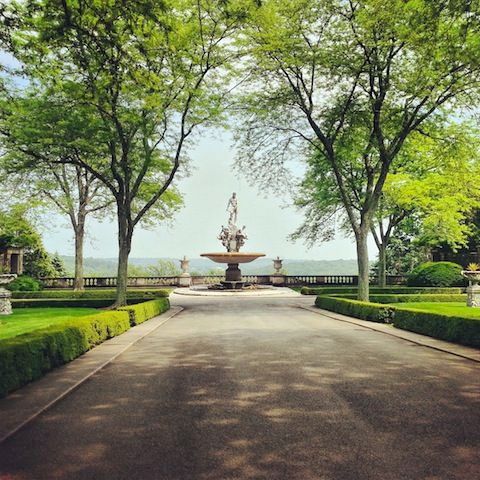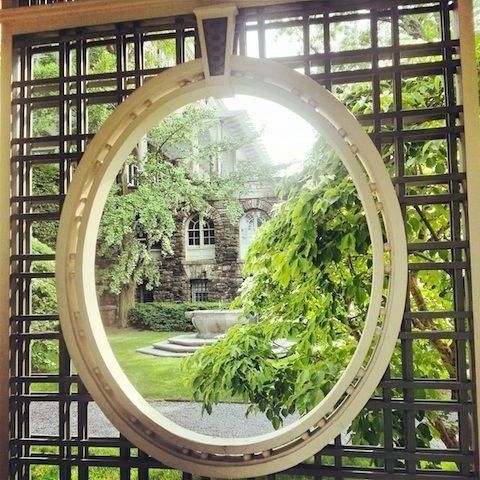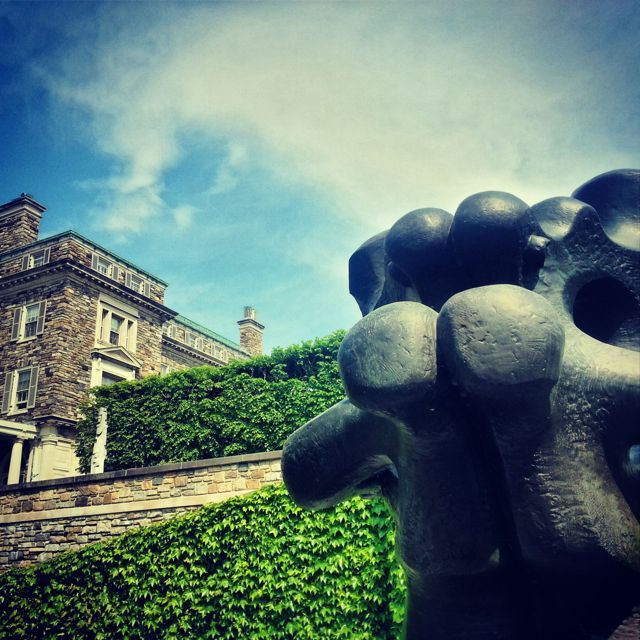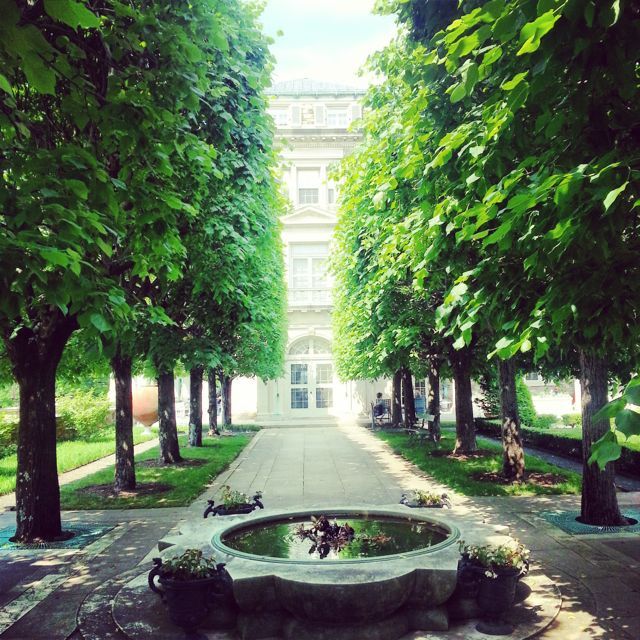After-Hours Tour of the Fraunces Tavern Museum: "Path to Liberty"
Explore a new exhibit inside the oldest building in Manhattan, a witness to history throughout the Revolutionary War Era!


Once a favorite haunt of America’s illustrious industrialists (and to an extent it still is), the great Hudson River Valley estates stand as a testament to the bygone Gilded Age as popularized by F. Scott Fitzgerald’s The Great Gatsby. While not as well known as the Gold Coast Mansions along Long Island Sound, the imposing Palisades and majestic Hudson River Valley that straddle New Jersey and upstate New York captured the imagination of the foremost industrialist of all, the first American billionaire and founder of Standard Oil, John D. Rockefeller.

Built in 1913 and situated in Pocantico Hills, New York, Kykuit (pronounced kai-cut) has been the home to four generations of the Rockefeller family. A short drive through downtown Sleepy Hollow takes you past sculptures depicting the famous legend and leads you to the estate’s towering wrought iron gates that look almost like portals to another world.
Once past the gates, features like an orangery befitting a ducal estate, a Tudor-style playhouse reminiscent of Marie Antoinette’s toy farm at the bottom of her gardens at Versailles and a gothic stable and garage compound that embodies the Rockefeller’s equestrian pursuits dot the expansive parkland leading up to the main house. A steep, winding drive at the heart of the parkland leads to the rocky promontory on which the main house sits behind two more impressive gates and from which the estate gets its name. Kykuit in Dutch means “lookout,” but the name soon took on a double meaning, seeming to warn the family of impending threats to the Rockefeller dynasty.


Reflective of John D. Rockefeller’s austere Baptist roots, Kyukuit was initially designed as a simple three-storied house made from stone quarried on-site. But extensive beautification created the imposing limestone classical revival Georgian facade we see today. The modest proportions and understated elegance of the interior contain some of the finest antique and art collections in the country.
Unlike the monumental size and ceremonial purposes of other museum-like Gilded Age mansions, Kykuit’s cozy rooms and whimsical contents tell a relatable story of the everyday life of the Rockefeller family. The devout John D. Rockefeller’s plain, almost puritan, furnishings sit amongst Governor Nelson A. Rockefeller’s more elaborate elephant motif furnishings reflective of his affiliations with the Republican Party. Throughout the house, priceless East Asian pottery that the family avidly collected and cherished anchors each room. The main floors and basement (the latter has now been turned into a gallery) boast modern art by the likes of Pablo Picasso, Alexander Calder, Andy Warhol and Henry Moore collected by modern art enthusiast Abby A. Rockefeller.

Manicured formal gardens with fountains, pools and walled gardens modeled on the world-renowned gardens at the Alhambra Palace in Granada, Spain envelope the house on an otherwise sprawling estate which once reach 3,400 acres in its heyday. Arguably the most priceless treasures at Kykuit are its unobstructed views of the Hudson River Valley north towards upstate New York and east towards the Palisades Interstate Park, which the Rockefellers made possible by donating land.
Only a short drive from northern New Jersey and New York City, a day trip to Kykuit makes for a historically and culturally enriching experience, as well as a chance to walk in the footsteps of President Ronald Reagan, Kofi Annan, Nelson Mandela, Shah Mohammed Reza Pahlavi of Iran and Andy Warhol, among other guests on Kykuit’s legendary guest list. Designated a National Historic Landmark in 1976 and open to the public since 1979 when Nelson Rockefeller bequeathed one-third of the estate to the National Trust for Historic Preservation, guided tours are available Wednesdays through Sundays, subject to seasonal closure.
Check out 26 other historic houses to visit in the Hudson Valley. Get in touch with the author @DHKJ0.
Subscribe to our newsletter